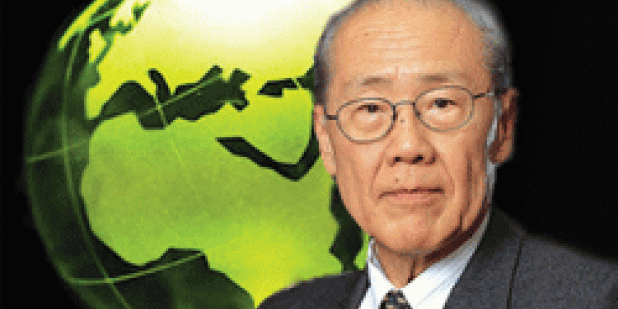Join us for a free one-day workshop for educators at the Japanese American National Museum, hosted by the USC U.S.-China Institute and the National Consortium for Teaching about Asia. This workshop will include a guided tour of the beloved exhibition Common Ground: The Heart of Community, slated to close permanently in January 2025. Following the tour, learn strategies for engaging students in the primary source artifacts, images, and documents found in JANM’s vast collection and discover classroom-ready resources to support teaching and learning about the Japanese American experience.
Changing Images of the Global
A talk by Wang Gung-wu, the inaugural lecture in the series Beyond the Headlines.
Where

For the past three decades, Chinese leaders have been responding to the challenges of economic globalization, and their efforts have been rewarded with extraordinary success. They have followed a policy of hiding China's light, seeking only a "peaceful rise." They have come to recognize that the modern world is always changing, sometimes slowly, sometimes rapidly, sometimes suddenly. The global in 1900 was obviously not the same as that in 1945 nor that after 1990 with the end of the Cold War. There are also other trajectories, like the fall and rise of capitalism since 1929 paralleled by the rise and fall of international Communism. Still others have made the shape of what is global hardly recognizable. When scientific and cultural power moved from Europe to the United States, the whole world shifted direction. Today, the talk is of the rise of Asia -- the Chinese wonder what this may be like for the long haul. They are assessing China's future place in the multidimensional global carefully because the consequences of bad mistakes could be disastrous.
Wang Gungwu (王賡武) was Vice-Chancellor of the University of Hong Kong from 1986 to 1995. He is the former Director of East Asian Institute and now its Chairman. He is also University Professor at the National University of Singapore (NUS) and Chairman of the Managing Board of the Lee Kuan Yew School of Public Policy.
Wang was born in Surabaya, Indonesia, and grew up in Ipoh, Malaysia. He studied history at the University of Malaya, Singapore, where he received both his Bachelor and Masters degrees. He holds a Ph.D. from the University of London (1957) for his thesis on The Structure of Power in North China during the Five Dynasties.
Professor Wang is a leading scholar of the Chinese diaspora and Southeast Asian history and society. Among Wang's books are The Chineseness of China (1991), China and the Chinese Overseas (1991), Community and Nation: China, Southeast Asia and Australia (1992), a new edition of Nanhai Trade: The early history of Chinese trade in the South China Sea (1998), China and Southeast Asia: Myths, Threats and Culture (1999), The Chinese Overseas: From Earthbound China to the Quest for Autonomy (2000), Joining the Modern World: Inside and Outside China (2000), Don't Leave Home: Migration and the Chinese (2001), Anglo-Chinese Encounters since 1800 (2003), and Divided China: Preparing for Reunification, 883-947 (2007). He has objected to the use of the word diaspora to describe the migration of Chinese from China, because it is inaccurate and has been used to perpetuate fears of a "Chinese threat."
Beyond the Headlines: China and the Global Future is a new lecture series that will bring to UCLA distinguished speakers who are key players in and observers of the global processes that are inextricably linking China's fate and the fate of the rest of the world.
Featured Articles
Please join us for the Grad Mixer! Hosted by USC Annenberg Office of International Affairs, Enjoy food, drink and conversation with fellow students across USC Annenberg. Graduate students from any field are welcome to join, so it is a great opportunity to meet fellow students with IR/foreign policy-related research topics and interests.
RSVP link: https://forms.gle/1zer188RE9dCS6Ho6
Events
Hosted by USC Annenberg Office of International Affairs, enjoy food, drink and conversation with fellow international students.
Join us for an in-person conversation on Thursday, November 7th at 4pm with author David M. Lampton as he discusses his new book, Living U.S.-China Relations: From Cold War to Cold War. The book examines the history of U.S.-China relations across eight U.S. presidential administrations.




